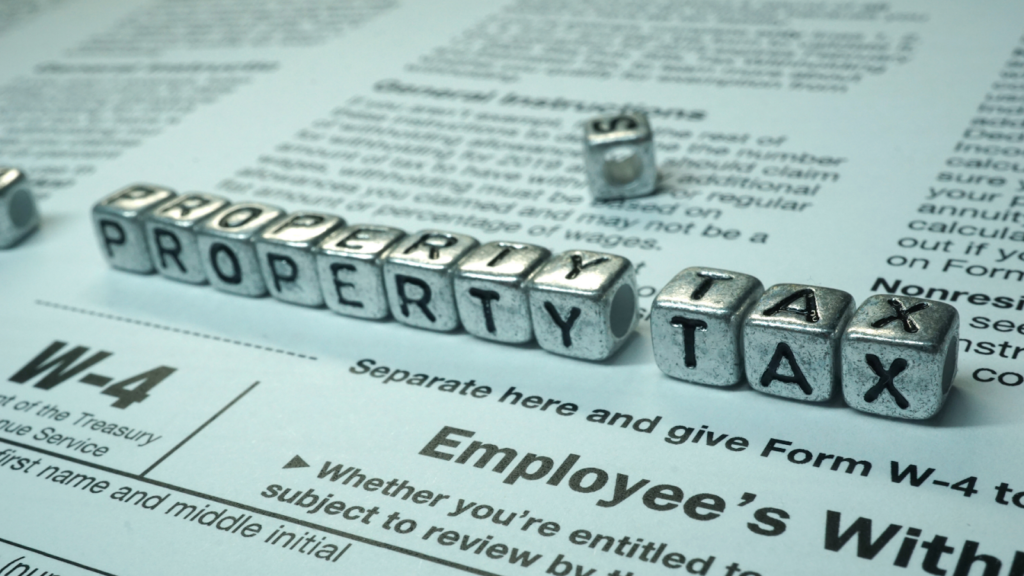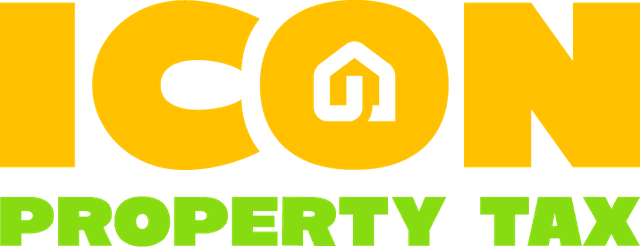How Escrow Works And Its Role In Property Taxes
April 2, 2025
Key Takeaways:
- Escrow Basics: Escrow accounts help homeowners manage property tax payments by spreading costs over 12 months. This ensures on-time payments and avoids penalties.
- Tax Impact on Escrow: Property tax changes can increase or decrease escrow contributions. If taxes rise, monthly mortgage payments may adjust to cover the difference.
- Lowering Property Taxes: Homeowners can reduce their tax burden by appealing property assessments. Icon Property Tax offers zero upfront fees and only charges when you save!
Property taxes can be overwhelming, but escrow accounts simplify the process by breaking down payments into manageable monthly installments. A portion of your mortgage payment is set aside in escrow to cover property taxes, ensuring they are paid on time and preventing late fees or penalties.
Here at Icon Property Tax, we help homeowners navigate property tax management while ensuring their escrow payments align with accurate tax assessments. With trusted local tax agents, we fight to lower your tax burden, ensuring you only pay when you save—no upfront fees.
Understanding how escrow works is key to avoiding unexpected tax increases and budgeting effectively. This guide will explain escrow’s role, its impact on mortgage payments, and how you can manage it efficiently.
The Role Of Escrow In Managing Property Taxes
Understanding the role of escrow in property tax management is essential for homeowners. Escrow ensures tax payments are made on time, reducing financial stress and preventing penalties. Here’s how escrow works, its benefits, and why you should stay informed:
How Escrow Accounts Work
Escrow accounts collect and store a portion of your mortgage payment to cover property taxes and insurance. Your lender estimates these costs annually and adjusts the monthly contributions based on tax assessments, ensuring your payments remain sufficient to meet obligations.
Preventing Late Payments And Penalties
By handling tax payments automatically, escrow accounts prevent homeowners from missing deadlines, which could lead to penalties or liens. This system protects your homeownership rights and ensures that your property remains in good standing with tax authorities.
Financial Stability And Budgeting
Escrow allows homeowners to manage tax payments in small, predictable amounts rather than facing large lump-sum bills. This approach simplifies budgeting, reduces financial strain, and ensures steady, on-time payments throughout the year.
Ensuring Accuracy In Property Tax Payments
Since property taxes fluctuate, escrow accounts adjust accordingly to avoid underpayment or overpayment. Homeowners should regularly review escrow statements and tax assessments to verify accuracy and prevent unnecessary financial burdens due to incorrect tax calculations.
Escrow And Property Taxes: What Homeowners Need To Know
Managing property taxes can be overwhelming, but escrow accounts help homeowners stay on track. They ensure property tax payments are handled automatically, preventing financial strain and penalties. Understanding how escrow works is essential to avoid surprises and plan ahead effectively:
How Escrow Simplifies Property Tax Payments
Escrow accounts break down annual property taxes into manageable monthly payments included in your mortgage. This prevents homeowners from facing large lump-sum tax bills, making budgeting easier and reducing the risk of missed payments that could lead to penalties or tax liens.
Lender’s Role In Managing Escrow Funds
Your mortgage lender collects escrow funds each month and disburses them directly to the tax authorities when payments are due. This ensures your property taxes are paid on time, eliminating the hassle of remembering deadlines or dealing with potential late fees and legal consequences.
Why Escrow Adjustments Happen
Property tax rates fluctuate based on local assessments, leading to changes in escrow contributions. If taxes increase, your lender recalculates your monthly payment to cover the difference. If they decrease, you may receive an Escrow surplus refund or lower monthly payments.
Escrow and Financial Planning
Escrow accounts offer predictable property tax payments, simplifying long-term financial planning. By incorporating taxes into your mortgage, homeowners avoid sudden expenses while ensuring compliance with local tax regulations. This system provides peace of mind and protects your investment from unexpected tax-related issues.

How Escrow Accounts Help Simplify Property Tax Payments
Managing property taxes can be stressful, especially with fluctuating rates and annual deadlines. Instead of scrambling to cover a large lump-sum tax bill, escrow accounts allow homeowners to break these expenses into predictable monthly payments. Here’s how escrow simplifies the process:
- Guarantees On-Time Payments: Missing a property tax payment can result in penalties or even a lien on your home. With an escrow account, your lender automatically pays your property taxes when they’re due.
- Eases the Financial Burden: Rather than paying property taxes in one large sum, escrow spreads the cost over 12 months, making it easier to budget.
- Simplifies Budgeting: Knowing that a portion of your mortgage payment is allocated for property taxes and insurance helps homeowners plan for other expenses.
- Protects Against Unexpected Tax Increases: Property values fluctuate, and so do property taxes. Escrow accounts adjust accordingly, ensuring you’re not caught off guard.
By streamlining the tax payment process, escrow accounts provide homeowners with peace of mind and financial stability. They eliminate the stress of remembering tax deadlines and help homeowners avoid unexpected financial strain, making them an essential tool for responsible property management.
How Escrow Affects Your Monthly Mortgage Payment
Your monthly mortgage payment consists of more than just the principal and interest on your loan. Escrow accounts play a crucial role in managing property-related expenses by breaking them into smaller, more manageable payments. Here’s how escrow impacts your mortgage payment:
- Divides Property Tax and Insurance Costs: Instead of paying a hefty property tax bill in one lump sum, your lender estimates your annual tax and insurance costs and includes a portion in your monthly mortgage payment.
- Prevents Missed Payments and Penalties: Since property taxes and insurance premiums are paid directly from your escrow account, you don’t have to worry about keeping track of due dates. This helps you avoid late fees and potential tax liens.
- Simplifies Budgeting: With tax and insurance costs already factored into your mortgage payment, you won’t need to set aside additional funds separately. This keeps your monthly expenses predictable and stress-free.
- Adjusts When Tax Rates or Insurance Costs Change: If your property taxes or insurance premiums increase, your escrow contributions will be adjusted, potentially leading to a higher mortgage payment. Conversely, if costs decrease, your payment may go down.
- Reduces Financial Strain: Escrow prevents homeowners from having to come up with large sums of money when tax and insurance bills are due. Instead, these costs are distributed evenly throughout the year.
Here at Icon Property Tax, we help homeowners identify tax-saving opportunities to keep escrow payments as low as possible. With zero upfront cost and no fees unless we save you money, we make sure you’re not overpaying on property taxes.
Adjusting Your Escrow Account: What To Expect
Escrow accounts change as property taxes and insurance costs fluctuate. These adjustments ensure sufficient funds to cover obligations, preventing shortages or surpluses. Here’s what to expect when your escrow account is recalibrated:
Annual Escrow Analysis
Lenders review escrow accounts yearly to ensure collected funds match actual tax and insurance costs. If property taxes rise, your monthly escrow payment increases to prevent shortages and keep your account properly funded.
Notification Of Changes
After an escrow analysis, lenders notify homeowners of payment adjustments through mail, email, or online portals. This allows you to review changes, understand their impact, and prepare for potential increases or refunds.
Payment Adjustments
When property taxes or insurance premiums increase, escrow contributions rise, affecting your mortgage payment. If costs decrease, your payment may be adjusted downward, reducing your overall escrow burden.
Surpluses And Shortages
Surpluses occur when excess funds exist, leading to refunds or credits. Shortages require additional payments or increased escrow contributions to cover higher tax or insurance costs.
Tips For Managing Your Escrow Account Effectively
Managing an escrow account doesn’t have to be complicated. By staying proactive and informed, homeowners can ensure their property tax payments remain accurate and manageable. Here are some key tips to keep your escrow account on track:
Stay Informed About Property Tax Rates And Property Assessments
Property taxes can fluctuate due to changes in assessed home values. Regularly check with your local tax assessor’s office to stay updated on tax rate changes and assessment values. Understanding these shifts can help you anticipate changes in your escrow payments.
Maintain A Paper Trail
Keep copies of property tax statements, mortgage escrow statements, and any correspondence with your lender regarding tax payments. If discrepancies arise, having documentation can help resolve issues quickly.
Review Escrow Analysis Statements
Lenders provide an escrow analysis statement at least once a year. This statement details how much has been collected and disbursed for property taxes and insurance. Reviewing this statement allows you to verify accuracy and identify any unexpected changes.
Communicate With Your Lender
If you notice discrepancies in your escrow account—such as overcharges or incorrect property tax amounts—contact your lender immediately. Mistakes can happen, and early intervention can prevent financial strain.
Budget For Changes
Property tax rates often change from year to year, leading to adjustments in escrow payments. Having a financial cushion can help you absorb potential increases without stress.
Escrow Refunds: When And How You Get Them
Escrow refunds occur when there is an excess balance in your escrow account after an annual analysis. If your lender determines that more money was collected than needed for property taxes and insurance, you may be eligible for a refund. Here’s how the process works:
When Do You Receive An Escrow Refund?
There are two main reasons why you might receive an escrow refund:
- Overestimated Tax or Insurance Costs: If your lender initially estimated higher tax or insurance costs than what was actually required, an overage builds up in your escrow account.
- Lower Property Tax Bill: If your property taxes decrease due to a successful appeal or assessment reduction, you may have a surplus in your escrow account. Icon Property Tax helps homeowners reduce their assessed property value, ensuring they’re only paying what’s fair.
According to federal regulations, if the surplus in your escrow account exceeds $50, your lender must issue a refund check.
How Are Escrow Refunds Processed?
Once an escrow surplus is identified, the process typically follows these steps:
- Escrow Account Analysis: Your lender conducts a review of your escrow account to determine whether a surplus exists.
- Notification and Refund Issuance: If an overage is found, your lender will send you a notice along with a refund check. Some lenders also offer the option to apply the surplus toward future payments.
- Options for Homeowners: You can choose to cash the refund check or apply it to future escrow payments to reduce your monthly mortgage cost.

Final Thoughts
Escrow accounts serve as a valuable tool in managing property tax payments, offering homeowners a way to spread costs evenly throughout the year while ensuring timely payments. However, many homeowners overlook the impact that property tax assessments have on their escrow balances. When property values rise, so do tax obligations—leading to increased monthly escrow contributions.
Frequently Asked Question About How Escrow Works And Its Role In Property Taxes
What items can be paid out of an escrow account?
Escrow accounts cover essential property-related expenses, including property taxes, homeowners insurance, and in some cases, private mortgage insurance (PMI) or flood insurance. These payments ensure your financial obligations are met without missing deadlines, helping you maintain compliance with your lender’s requirements and avoiding penalties.
What happens to escrow when property taxes change?
If property taxes increase, your lender will adjust your escrow payment accordingly to ensure enough funds are available when taxes are due. A tax decrease may lead to lower escrow contributions or even a refund, making regular property tax reviews beneficial for budgeting.
How is an escrow shortage handled?
An escrow shortage happens when there isn’t enough money in your escrow account to cover property tax or insurance costs. To resolve it, lenders typically require a lump-sum payment or increase your monthly mortgage payment over a set period to make up for the deficit.
What happens to the escrow account when the mortgage is paid off?
Once your mortgage is fully paid, your lender will close the escrow account and send any remaining balance to you. Afterward, you’ll be responsible for paying property taxes and insurance directly, requiring careful financial planning to avoid missing payment deadlines.
How can discrepancies in escrow analysis be addressed?
If your escrow analysis shows errors in property tax or insurance calculations, contact your lender immediately for a review. Providing updated tax bills or insurance statements can help correct any mistakes, ensuring your payments reflect accurate amounts and preventing unexpected financial strain.
Are there regulations governing escrow accounts?
Escrow accounts are regulated under the Real Estate Settlement Procedures Act (RESPA), which limits the amount lenders can collect and mandates annual escrow reviews. If an overage of $50 or more occurs, the lender must issue a refund to the homeowner.

